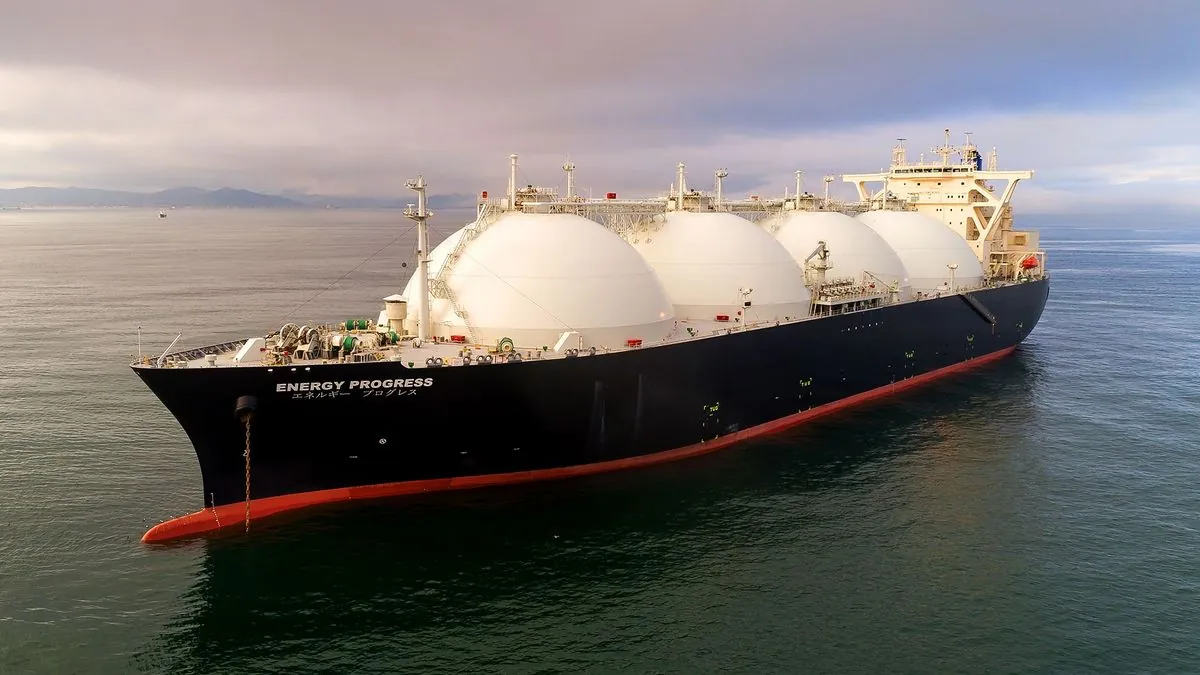In a significant move to curb Russian energy exports, the United Kingdom has imposed sanctions on five vessels and two entities involved in the transportation of Russian Liquefied Natural Gas (LNG). This action, announced on September 26, 2024, marks the first application of new legal powers specifically targeting LNG vessels.
White Fox Ship Management and Ocean Speedstar Solutions OPC are the two entities facing sanctions. The five ships affected are Asya Energy, Pioneer, North Sky, SCF La Perouse, and Nova Energy. These measures build upon earlier sanctions imposed on the Arctic LNG 2 project by the UK, United States, and European Union.
A government statement highlighted the impact of previous sanctions: "Since then, the project has been forced to slash production." The Arctic LNG 2 project, located on Russia's Gydan Peninsula, had initially planned a capacity of 19.8 million tonnes per annum.
This latest round of sanctions follows Britain's actions earlier this month against ten vessels in Russia's "shadow fleet." These ships allegedly employ illicit practices to circumvent Western restrictions on Russian oil exports.
LNG, a form of natural gas cooled to -162°C for easier storage and transport, has become a crucial component of global energy trade. Russia, as the world's second-largest natural gas producer after the United States, has seen its energy sector significantly impacted by international sanctions.
The UK's Office of Financial Sanctions Implementation (OFSI) is responsible for implementing these sanctions, which can include port bans, asset freezes, and prohibitions on providing services to designated vessels. Such measures can have far-reaching effects on global trade routes and energy prices.
Despite Western pressure, Russia maintains its stance against limiting oil exports. The past year has witnessed a growth in tankers transporting cargoes outside the regulation of conventional Western providers, a trend that sanctions aim to counteract.
These actions reflect the broader efforts of Western nations to reduce dependence on Russian energy following the 2022 invasion of Ukraine. The EU, in particular, has been working to diversify its energy sources, given that Russia's energy sector accounts for about 20% of its GDP and 40% of its federal budget revenue.
The global LNG market continues to expand rapidly, with demand expected to double by 2040. LNG is often considered a cleaner alternative to coal and oil, producing fewer greenhouse gas emissions when burned. However, the shipping industry, including LNG tankers, accounts for about 3% of global CO2 emissions.
As the use of sanctions as a foreign policy tool has increased significantly in the 21st century, the UK has emerged as a leading proponent of sanctions against Russia. Despite leaving the European Union in 2020, Britain has maintained close coordination on sanctions policy with its allies.
The effectiveness of these sanctions in reshaping Russia's energy export strategies and their impact on global energy markets remains to be seen. However, they undoubtedly represent a continued commitment by Western nations to apply economic pressure on Russia in response to its actions in Ukraine.
